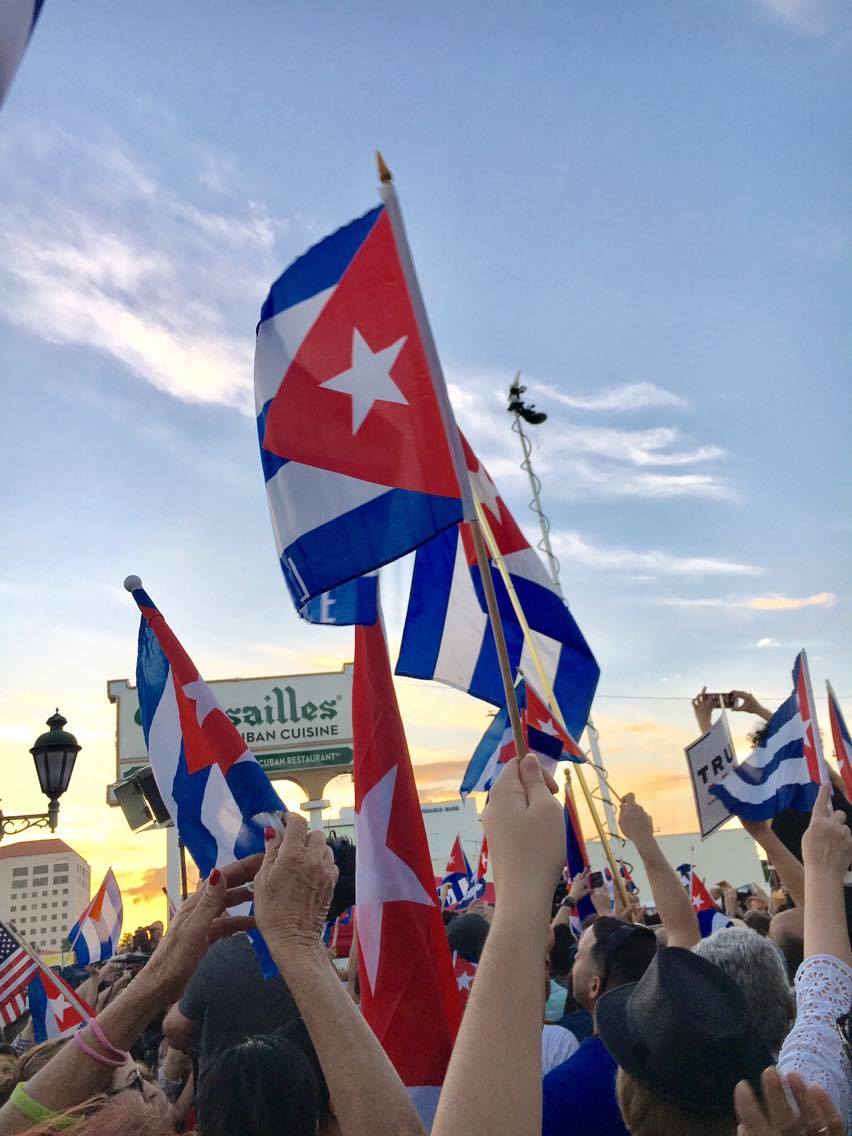
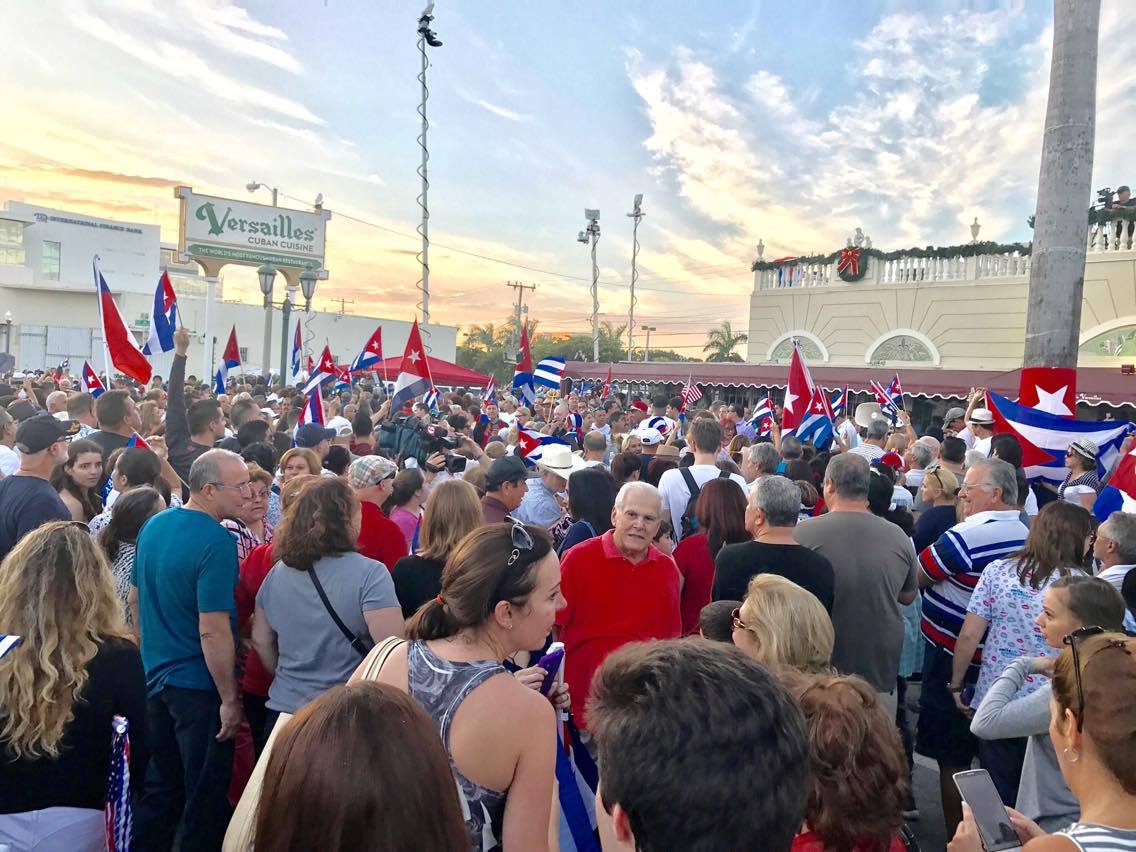
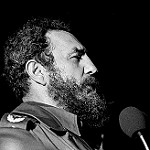
Fidel Castro, leader of the 1959 Cuban Revolution, passed away at 10:29 p.m. on Friday night, according to an announcement by his brother and President Raul Castro on state television.
Fidel Castro began Soviet-inspired communism in Cuba and ruled for nearly 49 years before stepping down in 2008. In Miami’s Little Havana, spontaneous festivities broke out on Friday night and lasted throughout Saturday to celebrate the end of what is widely viewed as a dark era for Cuban-Americans. The news of his death shook many Cubans to the core, and the University of Miami community was no exception. Social media was abuzz with the news, and some students even shared their firsthand experiences on the streets after Castro’s death was announced.
In the video below from UM student Jose Paredes, the crowd repeatedly chants “Libertad!” or “freedom” as they celebrate early Saturday morning.
A large part of the Miami Cuban community arrived in Florida after fleeing Castro’s reign, which began after the overthrow of dictator Fulgencio Batista. An influential revolutionary married to the ideals of egalitarianism, Castro has been credited for his radical strides toward universal healthcare and improving national literacy in Cuba.
However, Castro’s radical measures also included imprisoning thousands of political enemies, executing members of the old government, stifling free press and seizing farms and businesses from private owners. Under Castro’s tenure, Cuba also suffered a severe economic downturn and famine after the breakup of the Soviet Union in the early 1990s.
Cuban students at the University of Miami cite some of these reasons for their family’s immigration to Florida.
“My step-dad, who is the man who raised me, left Cuba at the age of six after his father’s company was taken by the Castro,” said sophomore American Studies major Tiffany Perez, who shared photos and live video of the celebrations throughout the day on Saturday. “My grandparents on my biological father’s side were cigar growers in Cuba until their farms where overtaken, and they were forced to move after being left with nothing. They came to the United States with not a penny and rebuilt. They now continue to grow cigars and are the reason I am able to go to UM.”
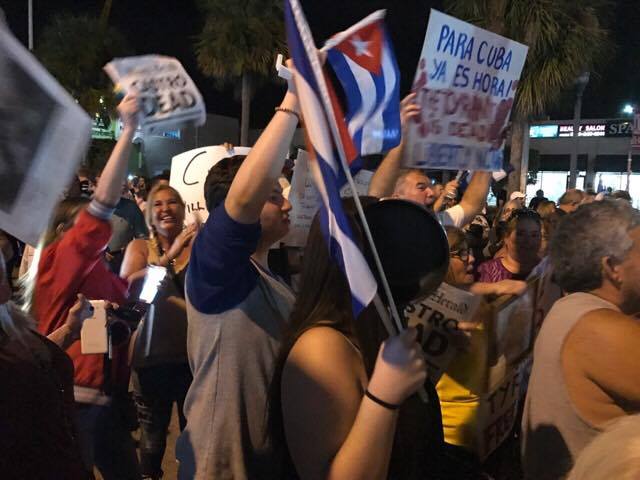
Perez’s aunt also came from Cuba on a raft as a teenager. Perez said legal emigration from Cuba was “nearly impossible” at the time.
The news of Castro’s death elicited strong reactions for many such families, who have had painful histories related to Castro’s Cuba.
Junior English major Diannis Barban said she ran around the house chanting “Viva Cuba libre'” after she first heard the news from a friend’s text. Barban says her family was relatively “lucky” – they gradually emigrated to the United States and were still able to visit family in Cuba.
“But I know what it’s like to suffer separation and not understand why half of your family has to stay behind and you have to leave,” Barban said. “And I know there’s so many that still experience that and to a much greater degree, so to all of us, Fidel’s death represents the end of a lot of that, or at least the hope of that – a closed chapter to a twisted history; the end of his life means the beginning of some change.”
Perez, who spent the evening near the famed Versailles Restaurant on Calle Ocho (8th Street) with her family, said her family’s initial reaction to the news was “disbelief.”
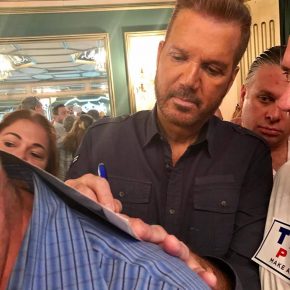
“I think it meant so much for my grandparents, who immediately made plans to cook a traditional meal and open that bottle of champagne they had saved for the day Fidel died,” Perez said. “They were glad that their country could possibly one day be free again. My parents were happy for their parents and wished their grandparents could see.”
In Little Havana, the atmosphere resembled that of a holiday. Red, white and blue Cuban flags were being sold on the streets. Cars honked and played music. Newspapers like The Miami Herald and El Nuevo Herald handed out free issues. Community members chanted in Spanish, banged pots and pans and held up posters with slogans like “Para Cuba ya es hora” – for Cuba, it is time.
“And honestly, I’m not rejoicing that a human being died,” said Barban, who watched the celebrations from home with her family. “I’m just glad that a huge symbol of communism fell, because it was about time. We don’t know what’s going to happen now – we know now everything will change, but we are hopeful! That man was in a position of leadership, even though he stood for what most Cubans rejected. It wasn’t just. It was time for him to go.”
Castro often went toe-to-toe with the United States government, particularly during the height of the Cold War. President Dwight Eisenhower officially severed relations with Cuba in 1961; just months later, President John F. Kennedy attempted the Bay of Pigs invasion with the help of Cuban exiles. Tensions peaked during the Cuban Missile Crisis in fall 1962, when the United States and the Soviet Union came close to waging nuclear war.
At 90 years old, Castro outlived almost every major leader of that era. He was only 32 when he first took power in Cuba.
In the last decade, Cuba has taken steps toward change. Individuals can now own private property and businesses, and religion is returning to the nation after decades of national atheism. It is now easier for Cubans to travel outside of the country. In 2015, the United States restored diplomatic relations with Cuba.
Perez, whose grandparents’ farms had been seized by Castro’s government, said she thought of her late grandfather during Saturday’s celebrations: “He would have been on the streets handing out his prized cigars!”






